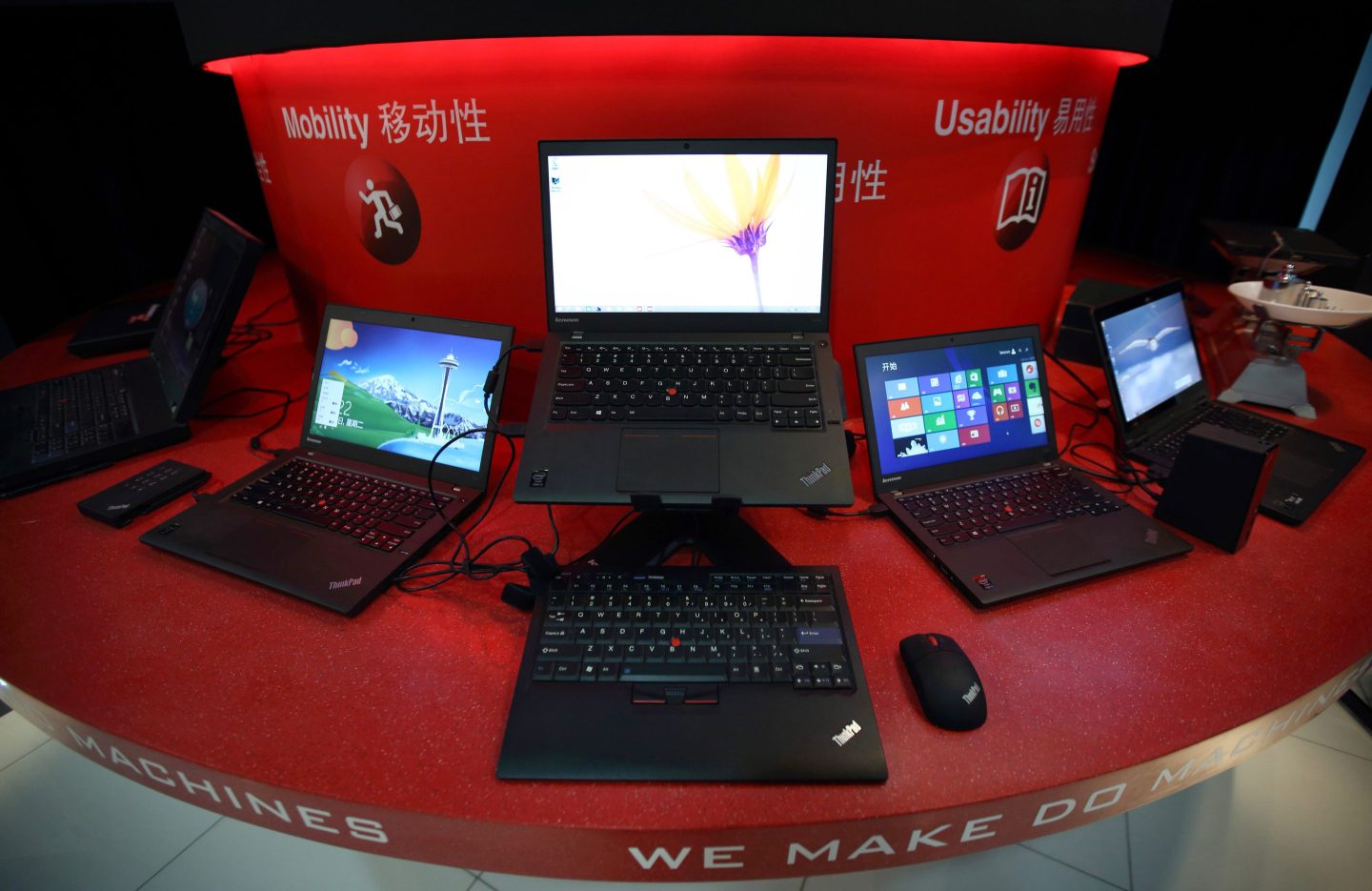Lenovo, the largest producer of computers by volume, snapped a five-quarter-long losing streak on Thursday. The company reported $15.7 billion in revenue for the quarter ended Dec. 31, 2023, a 3% increase from the same period the year before. It’s the company’s first year-on-year increase in revenue since late 2022, and surprised analysts that instead expected flat growth for the quarter.
Lenovo’s personal computers generate about 80% of the company’s revenue. But the PC market has gone into an extended slump, the result of macroeconomic headwinds and the end of the COVID-era work-from-home boom.
But despite the earnings beat, markets didn’t appear to welcome the news. Shares in the Beijing-based company fell by as much as 8.5% in Hong Kong on Friday morning, though pared losses as the day went on.
Shareholders may have been concerned by falling profits at the PC maker. The company earned $337 million in quarterly net income, a 23% drop from the same period a year ago. A note from Citi analysts pointed to a muted near-term outlook, including a possible delay in PC purchases by enterprise customers in the first half of the year.
What’s an AI PC?
Lenovo is turning to a popular trend in its drive to boost demand: AI.
The company will start shipping its first AI personal computers in the first half of the year, Luca Rossi, president of Lenovo’s PC division, said Thursday. These devices have dedicated processors to handle generative AI tasks locally on the device, rather than in the cloud. (Device makers, including Lenovo, are also exploring manufacturing smartphones that can handle AI tasks locally.)
CEO Yang Yuanqing said that PCs would come with “a personal intelligent agent” and a “compressed local large language model.”
More important, CFO Wai Ming Wong suggested that AI PCs could drive a new product cycle with premium pricing, and could be an “inflection point for the PC industry.”
Yet the rise of AI PCs might take a while to arrive. William Li, a senior analyst at Counterpoint Research, forecasts “peak season” for these devices will come only in the second half of 2024 through to 2025.
Lenovo is the latest tech company racing to provide products and services tied to AI. A recent report from tech market research firm IDC predicts that over 167 million AI PCs will be shipped in 2027. Most AI PCs will be sold to commercial buyers, though consumers might also be interested in applications for gaming and digital creation, IDC wrote.












